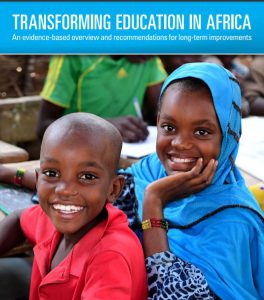
UNICEF just published its report on education in Africa describing a discouraging digital learning context in the Western and Central part of the continent where 48% of students did not have access to distance learning during lockdown.
This happened because there was actually no distance learning offered or because if there was, students did not have a computer or an internet connection at home, especially those living in rural areas.
The broader reasons were governments’ limited support to teachers and a lack of funds for distance learning. In fact only 50% of Northern African and 27% of sub-Saharan countries train teachers in distance education. More training of teachers is undoubately needed to broaden the range of opportunities offered to students, being Africa’s future workforce. Digital competences need to be embedded in school national curricula. They should also be communicated as lifelong key competences that are essential, today, for social development.
However, during the Covid restrictions, African governments found a variety of effective alternatives which should be maintained and further developed, as claimed by UNICEF. The learning material was disseminated through take home papers but also TV and radio channels (broadcasting for hours every day) and through digital platforms (offline and online).
The solution of the Kenyan government was among the most successful ones. The key was to create its own digital learning contents and develop an enabling environment from the early stages: DigiSchool increased the distribution of digital tools and the level of students’ enrolment and motivation to come to school to use devices. Once again, in C4D and ICT4D, an approach that consider beneficiaries’ preferences in designing and implementing their own solutions seem to be the only possible way.
The report stresses the importance of public-private partnership and brings the case of the Africa Code Week, currently taking place throughout the continent where hundreds of teachers are being trained on coding. UNICEF recommends partnerships with telecommunications companies and internet providers to decrease the cost of services as well as with IT corporates and mobile network operators to introduce innovative learning approaches that can reach students in rural areas.
It is interesting to note that the report does not mention the non-African origins of the two discussed best practices (DigiSchool was implemented thanks to the Chinese Government and the Chinese corporation Huawei while the Africa Code Week is a yearly initiative from SAP, the German corporation, started in 2015). Yet they show the importance of African countries collaborating to fund ICT for learning through continental projects.


